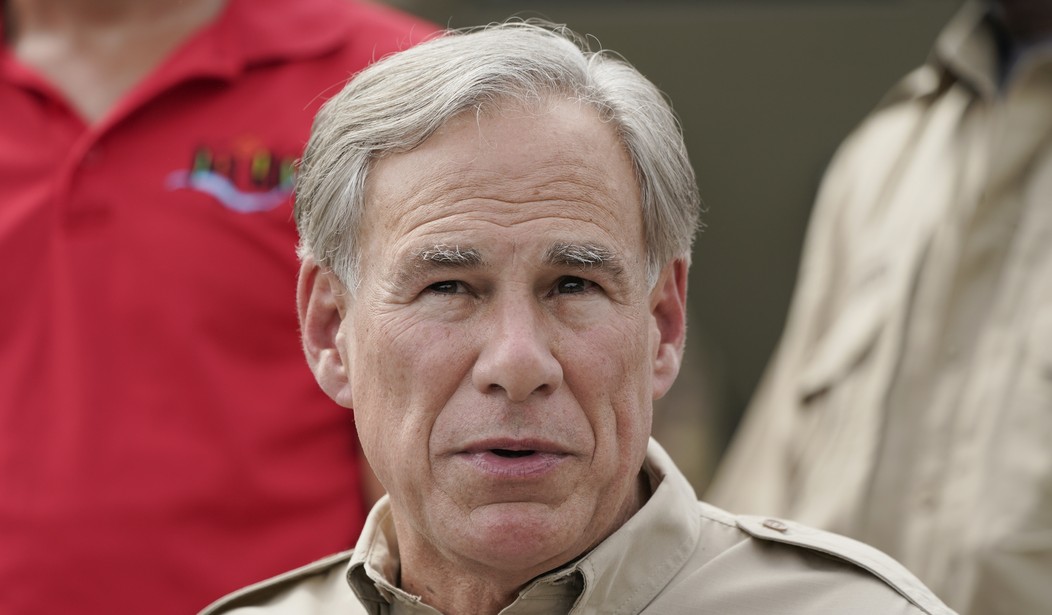Texas Gov. Greg Abbott, who this month signed a bill that aims to restrict the editorial discretion of social media platforms, says the new law "protects Texans from wrongful censorship" and thereby upholds their First Amendment rights. The law, H.B. 20, is scheduled to take effect on Dec. 2, but that probably will not happen because it is blatantly unconstitutional and inconsistent with federal law.
Abbott, a former Texas Supreme Court justice who served as his state's attorney general from 2002 to 2015, presumably knows that. But whether he is sincerely mistaken or cynically catering to his party's base, H.B. 20 reflects widespread confusion among conservatives about what the First Amendment requires and allows.
"Too many social media sites silence conservative speech and ideas and trample free speech," Abbott complained in March. A like-minded state senator declared that "Texans must be able to speak without being censored by West Coast oligarchs."
Although the evidence supporting such complaints is disputed, let's assume they are justified. Or let's imagine a social media platform that explicitly caters to the left and bans dissenting posts.
Would that constitute a violation of conservatives' First Amendment rights, as Abbott claims? No, since the First Amendment applies to the government and imposes no constraints on private parties.
To the contrary, the First Amendment guarantees a private publisher's right to exercise editorial discretion. The Supreme Court emphasized that point in a 1974 case involving a political candidate's demand that the Miami Herald publish his responses to editorials that criticized him.
The constitutional protection against compelled publication does not disappear when we move from print to the internet, or from a news outlet to a website that invites users to post their own opinions. As Justice Brett Kavanaugh noted when he was a judge on the U.S. Court of Appeals for the D.C. Circuit, "the Government may not... tell Twitter or YouTube what videos to post" or "tell Facebook or Google what content to favor."
Recommended
Yet that is what H.B. 20 purports to do. The law says "social media platforms" with more than 50 million active monthly users in the U.S. may not "censor" content based on the "viewpoint" it expresses. That edict covers any effort to "block, ban, remove, deplatform, demonetize, de-boost, restrict, deny equal access or visibility to, or otherwise discriminate against expression."
H.B. 20 makes a few exceptions, including "expression that directly incites criminal activity" and "specific threats of violence" that target people based on their membership in certain protected categories. But otherwise, the rule's reach is vast: As two trade organizations note in a federal lawsuit they filed last week, H.B. 20 "would unconstitutionally require platforms like YouTube and Facebook to disseminate, for example, pro-Nazi speech, terrorist propaganda, foreign government disinformation, and medical misinformation."
Every social media service -- including alternative platforms such as Parler and Rumble, which are not covered by the law because they fall below its user threshold -- moderates content to some extent. And while there will always be disagreement about the formulation and enforcement of those rules, H.B. 20 replaces private discretion with government dictates.
In addition to the First Amendment, H.B. 20 flouts 47 U.S. Code 230, which bars states from imposing civil liability on a website for "any action voluntarily taken in good faith to restrict access to or availability of material" it deems "objectionable, whether or not such material is constitutionally protected." H.B. 20 implicitly acknowledges that barrier, saying it does not authorize "damages or other legal remedies to the extent the social media platform is protected from those remedies under federal law" -- a proviso that effectively nullifies its ban on "censorship."
In June, a federal judge issued a preliminary injunction against a similar Florida law after concluding that it probably violated the First Amendment and Section 230. The fact that supporters of H.B. 20 were unfazed by that ruling shows how readily Republicans sacrifice constitutional principles in their culture war against "West Coast oligarchs."

























Join the conversation as a VIP Member